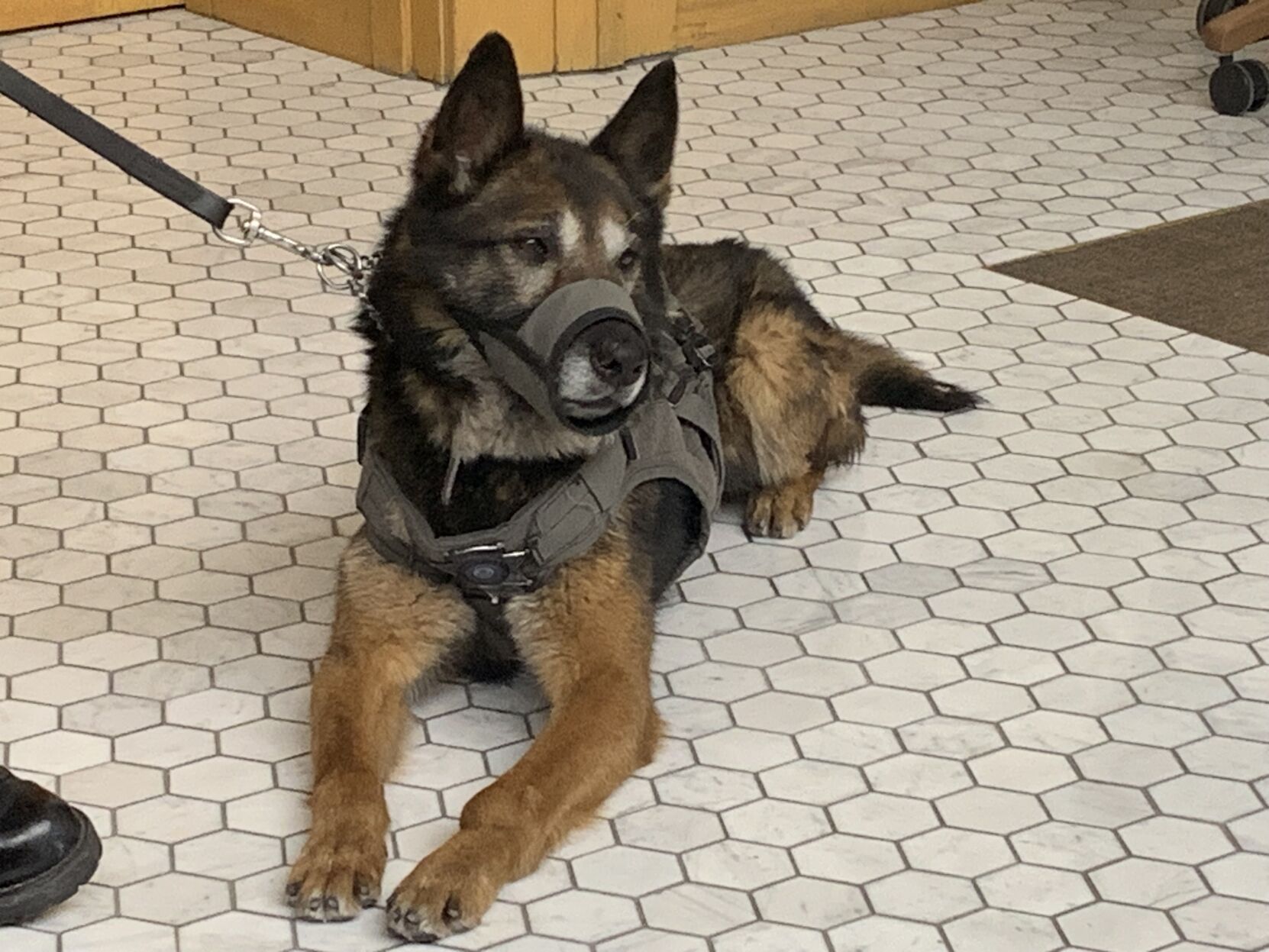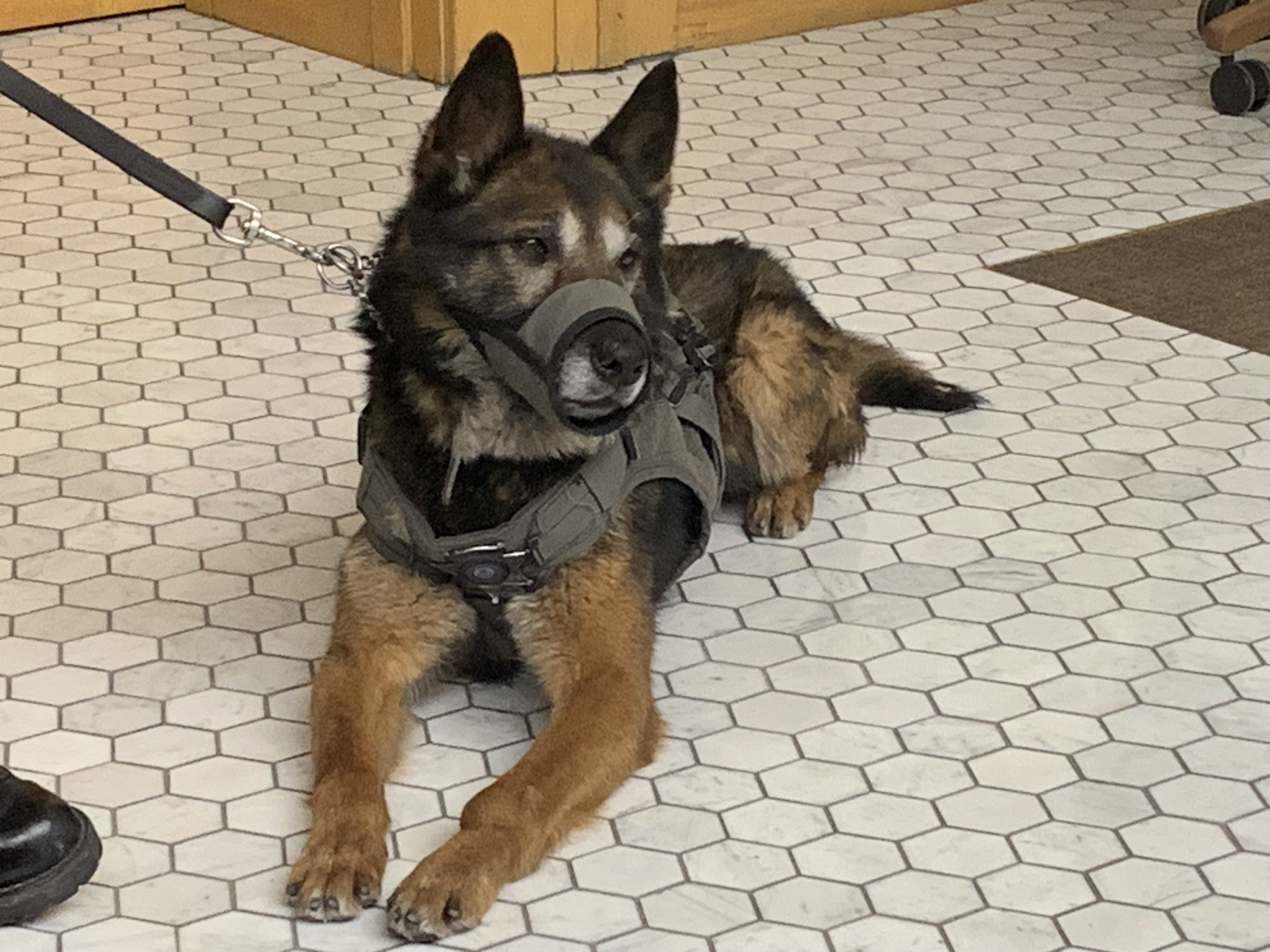Bills to increase penalties for attacks on police dogs wins House committee approval

Jinx and Graffit were highly-trained dogs who specialized in drug detection and suspect apprehension.
The latter cost both of them their lives.
K-9 officer Jinx, a three-year-old Belgian Malinois, and his handler Deputy Sheriff Ronnie Hancock of the El Paso Sheriff’s Department, were called to Manitou Springs a year ago to help apprehend a man brandishing a gun. The man was killed by deputies, but not before he shot and killed Jinx.
Graffit was a 10-year-old German Shepherd K-9 officer when he and his handler, Jeffco Sheriff’s Deputy Zachary Oliver, were called to the Colorado School of Mines in Golden last February to apprehend an armed man who went into the woods, over a hill and down an embankment.
The man shot and killed Graffit.
In both cases, the penalties for killing a highly-trained working or police dog were no different than for killing any other animal.
House Bill 1286 and House Bill 1293 intend to change that.
The House Judiciary Committee on Tuesday heard from the officers who handled Jinx and Graffit as well as other K-9 partners, accompanied by their dogs.
“He was more than a pet, more than a friend. He was family,” Oliver said. “We did everything together. He was my shadow…he took a bullet that wasn’t meant for him.”
Oliver said going back to work without Graffit is the hardest thing he’s ever had to do, and still keeps the kennel in his patrol car. He added the hardest thing to know is that the consequences for the suspect who allegedly killed Graffit doesn’t fit the danger the suspect put him in.
“My biggest plea: Do something for us,” he said.
House Majority Leader Rep. Monica Duran, D-Wheat Ridge told the committee that as a “fierce advocate” for animals, it broke her heart to hear of Graffit’s death. She said she “tearfully watched the proceedings” as Graffit was escorted to his place of rest with his body draped with a flag.
There needs to be something in place in the criminal justice system that addresses the penalty as well as restitution, she said.
Initially, HB 1286 would have ramped up the penalties for aggravated animal cruelty when it involves a service or working dog, such as a police dog.
But another bill moving through the process – HB 1293, which contains felony sentencing recommendations from the Colorado Commissioner on Criminal and Juvenile Justice – also covers the penalties for aggravated animal cruelty and makes the penalty more severe than what was in HB 1286.
In HB 1286, the penalty for killing a service or police animal, including dogs and horses, would become a class 5 felony. In HB 1293, it’s a class 4 felony. The difference: a class 5 carries a sentence of one to three years in prison; a class 4 is two to six years in prison. The fines for those violations are also ramped up under a class 4 felony.
HB 1293 was also heard in the Judiciary Committee Tuesday.
HB 1286 was amended to remove the penalties and deal with only the restitution piece. Under the bill, the fine for aggravated animal cruelty involving a working or police dog is $2,000 plus a mandatory anger management class. It also includes a requirement for restitution to the agency or owner of the animal, which would cover costs for training, certification, veterinary and replacement costs.
Rep. Ryan Armagost, a Berthoud Republican who is a former Larimer County K-9 Sheriff’s Deputy and co-sponsor of HB 1286, said these dogs are a “force multiplier,” with sometimes just a simple bark or whine enough to do their jobs.
Armagost estimated the cost to train a dog to be patrol ready at $200,000. Police horses are also expensive to train, but can help move people out of large groups and with more force than people, he said.
“It’s time to stand up to protect them,” he told the committee. “We need to understand what the entirety of losing a working dog partner amounts to. It’s not just losing a pet; it’s losing a partner that you depend on for your livelihood and safety as well as that of our citizens.”
HB 1286 passed on a 10-1 vote and now heads to the full House.

marianne.goodland@coloradopolitics.com














